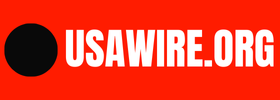[ad_1]

The new class of college graduates have plenty of reasons for optimism. After four years of semi-remote classes and fully uncertain futures, the job market is finally looking brighter—and the newest cohort may even be better positioned to land a good job than pre-pandemic grads.
All those years of unconventional schooling—with Zoom lectures and dropped SAT requirements—surely have made students more amenable to change, unpredictability, and going with the flow.
But on the other side of the ledger, those years of tight labor markets and missed opportunities for in-person internships or entry-level work may have left them haplessly behind when it comes to assessing and mastering workplace culture. And as many leaders have long maintained, soft skills are often significantly more crucial than tasks that can be taught to anyone during onboarding.
That’s certainly been the opinion of the top brass. Nearly half of hiring managers say Gen Z is the hardest sect to work with—a take even Gen Z bosses agree with. “It’s wholly understandable that students who missed out on face-to-face activities during COVID may now be stronger in certain fields, such as working independently, and less confident in others, such as presentations to groups,” Ian Elliott, chief people officer of PwC’s UK business, said recently.
Even if group presentations aren’t part of the job description, it’s incumbent upon new workforce entrants—in any field, doing any job—to have a strong sense of why they were hired, and what they need to do to remain in good standing. That’s according to Matthew Saxon, the chief people officer of Zoom, who extolled the virtues of self-awareness and value-adding in a recent interview with Fortune.
“Young Silicon Valley newcomers need to really understand how to create value, particularly customer value,” Saxon told Fortune. “If you’re in a support function that might be a couple of steps removed [from the customer], still be really clear on how you can add the most value.”
Zoom, the pandemic-era videoconferencing darling that remains a household name, conducts a quarterly check-in among each member of its workforce, Saxon said. It focuses on three primary pillars. The first: What are the priorities of the upcoming quarter, and how might you help in achieving them? The second: Celebrating success while also considering where you can do better, in equal measure. The third: Asking how you can develop, both within your current role and in potential future roles.
“That really is the model for setting someone up for success,” Saxon said. “Understanding the customer value chain, and where you play within that.”
Luckily for Saxon—and for people leaders across the workforce who may be confused by Gen Zers—it turns out the youngest workers, more than any of their forebears, really do care about connecting with their work output and seeing how it improves the world around them.
“Gen Z values jobs that are ‘directly helpful to others’ more than previous generations did,” Jean Twenge, a psychology professor at San Diego State University and the author of Generations: The Real Differences between Gen Z, Millennials, Gen X, Boomers and Silents—and What They Mean for America’s Future, wrote for Fortune recently. Gen Zers also show more empathy than millennials did at their age, and seek out jobs that are more “worthwhile to society.”
That’s a fact Saxon knows well. He told Fortune he considers his job as head of people to be three-pronged: He must look after the company, the team, and the individual. “People chiefs and HR functions need to look through those three lenses, too,” he said. “It’s about how you build connections in the company, and how you execute on vision, mission, strategy, values, philanthropy, DEI—any of those sorts of things.”
It’s critical for any company to foster those meaningful bonds—both to each other and to the work—he added. “I think sometimes human resources leaders have tended to focus on the top part, which is the company level, and maybe traditionally, not heavily on the individual level.”
With their gumption and desire for a job that reflects their values and need for work-life balance, Gen Z might finally rebalance the scales for good.
[ad_2]
Source link
